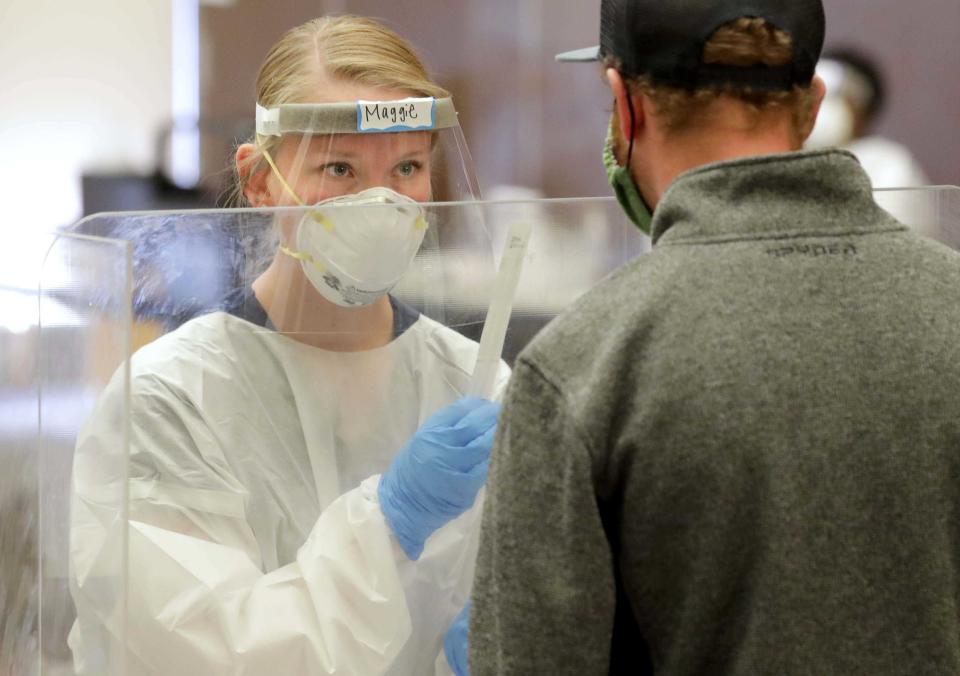RSV and the only flu strain known to cause pandemics are spreading in Palm Beach County
- Oops!Something went wrong.Please try again later.
The only strain of the flu known to cause pandemics is spreading in Palm Beach County, along with another respiratory disease for which a vaccine was developed this year, sewage data show. In the meantime, COVID-19 stays low.
The latest readings from the Jupiter-area Loxahatchee River District, conducted Oct. 2, show respiratory syncytial virus, or RSV, at its highest levels in nearly a year along with low amounts of Influenza A, the one flu strain that can cause pandemics.
How RSV makes you ill and who is in danger
The national WastewaterSCAN initiative detected about 19.5 RSV particles per milligram of waste in sewage samples the district sent it Oct. 2, the most since early last December.

RSV causes cold-like symptoms. Most people recover in a week or two, the federal Centers for Disease Control and Prevention says, but it can present a grave danger to infants and the elderly.
The infection can send them to the hospital. It is the leading cause of hospitalizations for infants in the United States, according to the CDC. As many as 10% of infants in the hospital with RSV are placed on a ventilator.
The federal Food and Drug Administration approved the first vaccine for RSV in the U.S. in May. It is called Arexvy, developed by GlaxoSmithKline. It’s for people ages 60 and older.
Influenza A, norovirus stomach bug spreading
Loxahatchee River District sewage had about 1.6 Influenza A parts per milligram on Oct. 2, WastewaterSCAN testing shows, the most since February, but 92% less than late last December.
The norovirus stomach bug continues to spread. WastewaterSCAN testing found 6,660 viral particles per milligram Oct. 2, up from 4,682 parts per milligram Sept. 22. It’s still about a fifth of the concentrations recorded in mid-March.
People can catch this stomach bug through their mouths, the CDC says. Touching people, food or objects that have the pathogen on them and putting your fingers in your mouth is one way to become infected, as is drinking from the same cup as an infected person.
More: What if my at-home COVID tests have expired? Step by step, how to tell if you can use them
There are no vaccines for a norovirus infection nor any drug to treat it, the CDC says. Infected people should drink plenty of liquids, the federal agency says. Washing hands helps prevent the virus' spread.
Testing also found about 2.4 Influenza B particles per milligram. This strain of flu, milder than Influenza A, has declined 70% since Sept. 25.
As for COVID, Boston-based Biobot Analytics found about 384 viral particles per milliliter of sewage samples tested Oct. 2, down from 408 particles per milliliter Sept. 25.
Both readings are much lower than the 892 parts per milliliter recorded Sept. 6.
Hospitals across Florida continue to discharge more COVID-positive patients than they take in. Medical staff statewide tended to 1,120 such patients Sept. 30, down from nearly 2,000 during the first week of September, the latest data from the U.S. Department of Health and Human Services show.
This article originally appeared on Palm Beach Post: RSV, flu spreading in Palm Beach County, sewage shows

